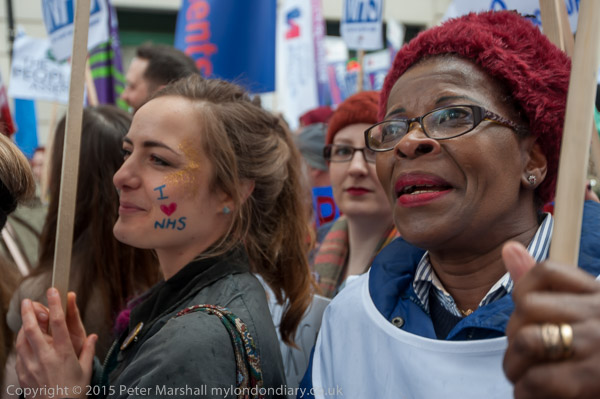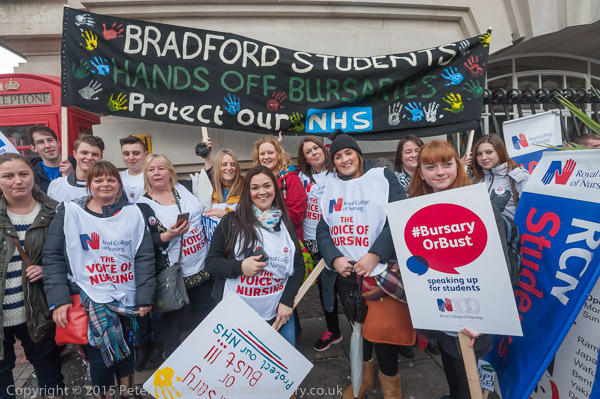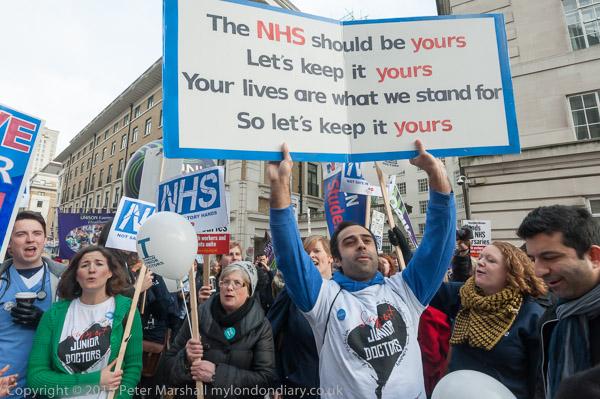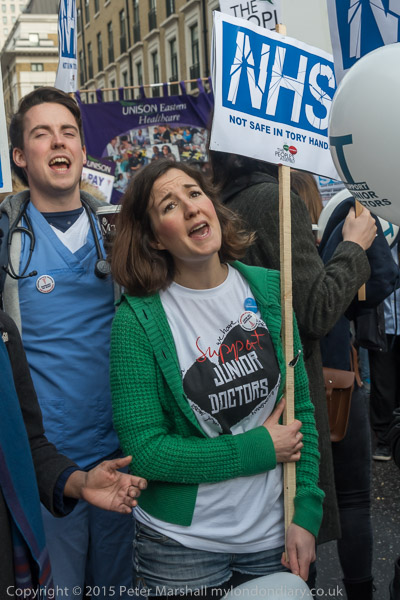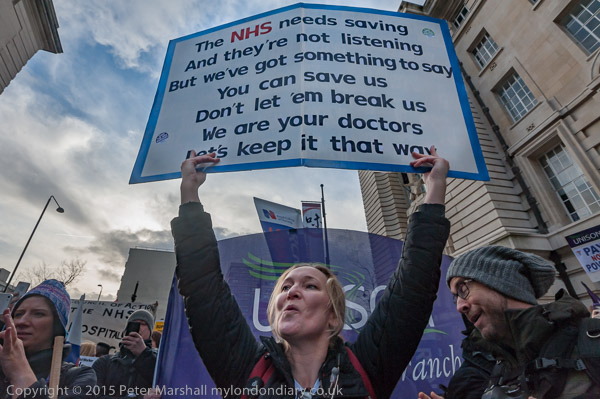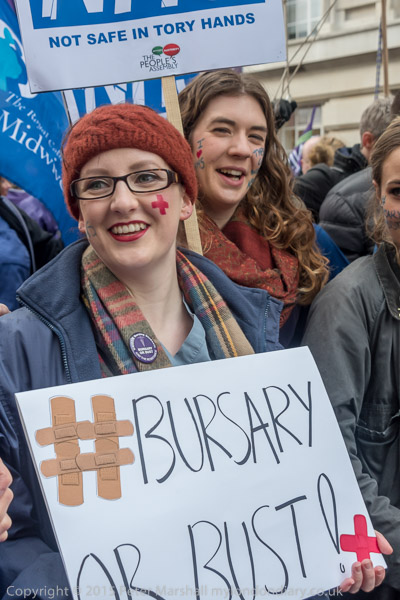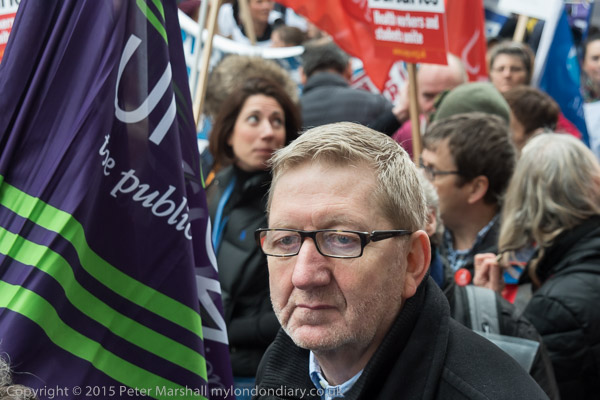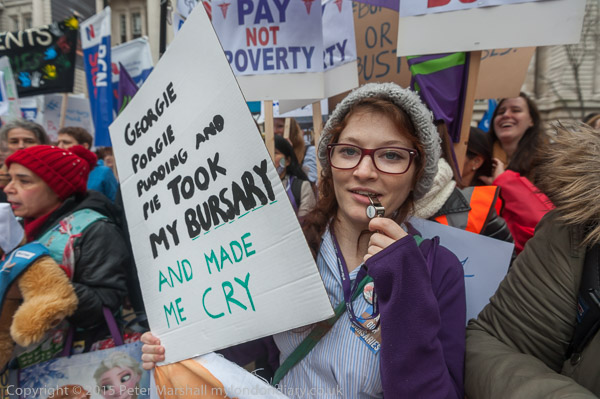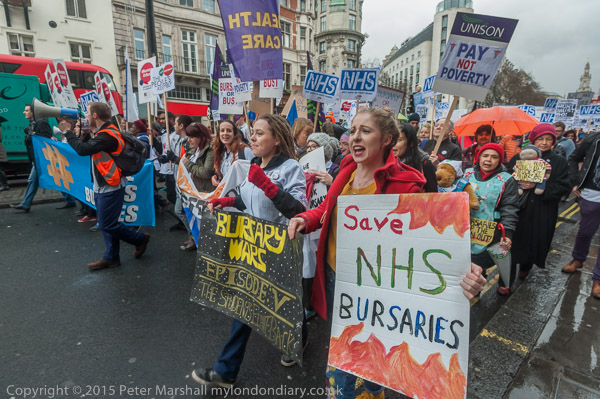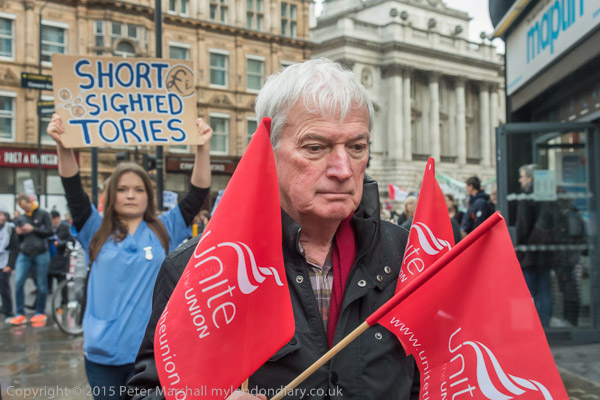HP in Israel, Nurses bursaries, Hungary, Congo & Syria – five protests that I photographed on
Saturday 4th June 2016.
Boycott HP against Israeli apartheid – PC World, Tottenham Court Road
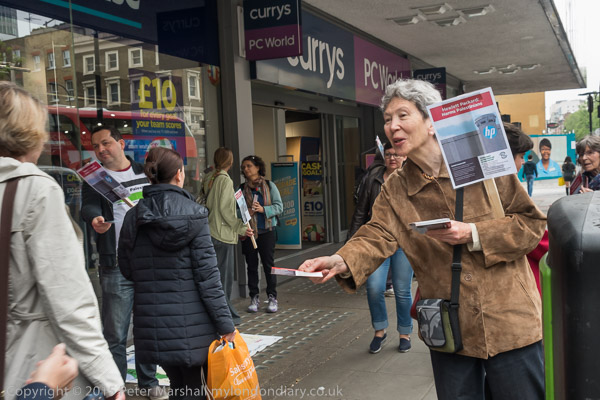
A protest outside PC World on Tottenham Court Rd was one of around 20 actions around the UK held to raise awareness of Hewlett Packard’s heavy involvement the Israeli oppression of the Palestinian people and encourage a boycott of HP.
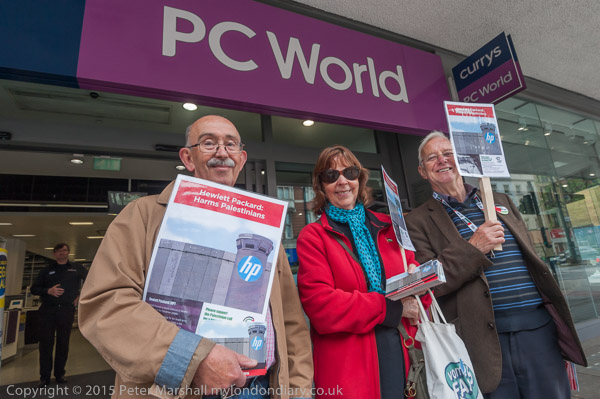
HP provides the biometric system used for ID cards used to control movement of Palestinians inside Israel and in the occupied Palestinian territory, technology for the Israeli military and supporting the illegal settlements.
Boycott HP against Israeli apartheid
March to save NHS student bursaries
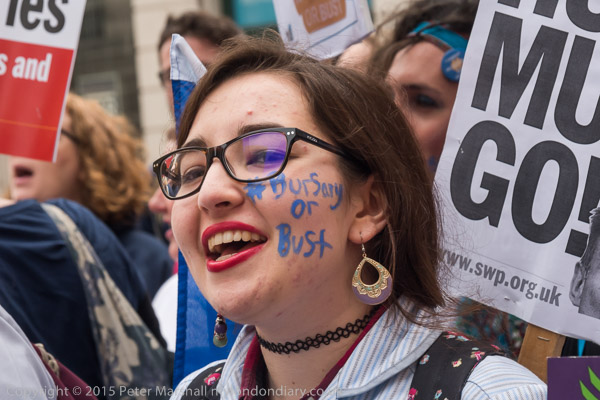
NHS students and supporters marched from St Thomas’s Hospital to the Department of Health in Whitehall along a route over Waterloo Bridge where there was a brief sit-down, and along the Strand to Charing Cross, where they were joined by disabled protesters who went with them to a rally in front of the Dept of Health at Richmond House on Whitehall.
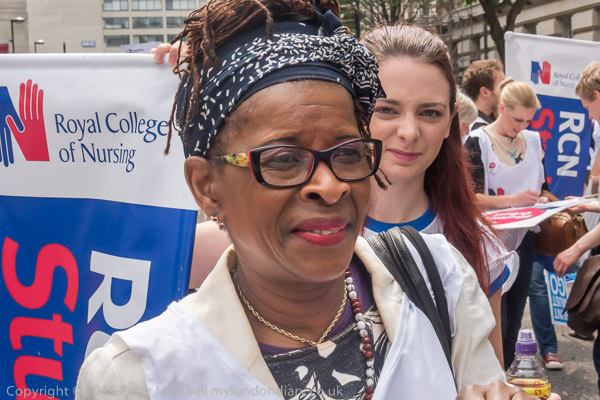
Student bursaries are essential for nursing students as they have to spend 50% of their course working in the NHS and unlike other students are unable to work part-time to support themselves. Their work as students is important in keeping the NHS running and the bursaries also allow mature entrants to the profession to train.
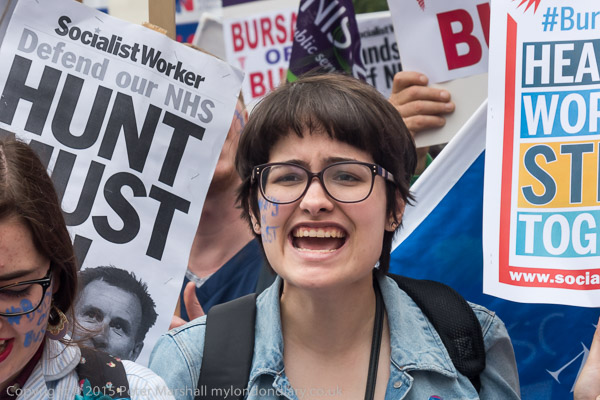
Our current nursing shortage is in part due to the ridiculous decision by Jeremy Hunt who ignored the nursing unions and almost everyone else in making the cut. He claimed that removing the bursary would mean that there would be up to 10,000 more training places. In fact the number accepting places on nursing courses in 2018 dropped to its lowest level for five years, 8% less than when bursaries were available. The maintenance grant was reinstated in 2020, leading to an increase in student numbers, particularly in those over 30, where the increase was around 40%.
March to save NHS student bursaries
Rally against axing NHS student bursaries
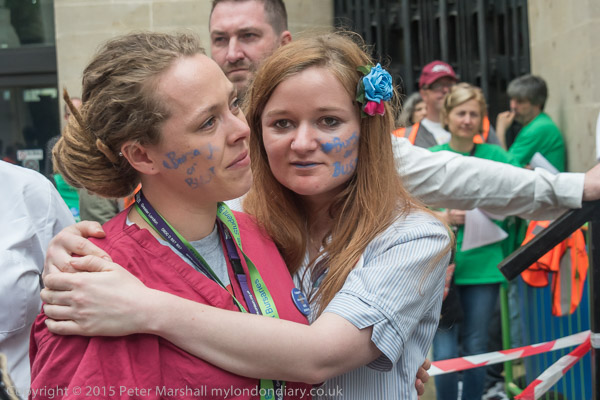
Rally against axing NHS student bursaries
Call for a Greater Hungary – Downing St
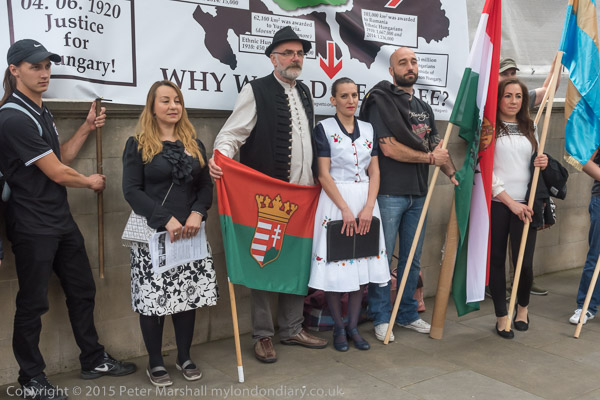
Hungarian nationalists marched to Downing St calling for the restoration of the pre-1920 borders of Hungary, including the Székely Land in Romania.
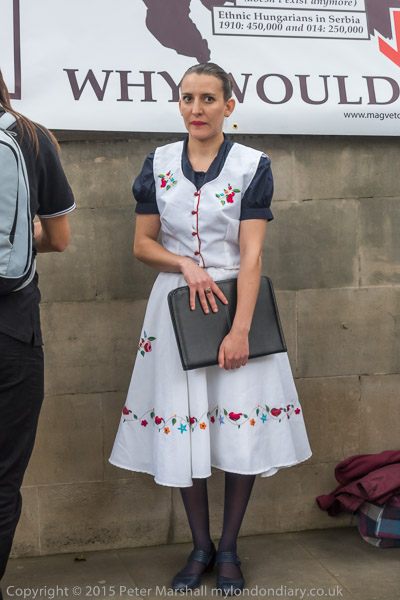
The right-wing Jobbik party or Movement for a Better Hungary has grown considerably in support and in 2018 became the second largest party in the National Assembly and is often accused of seeking the restoration of the borders before the 1920 Trianon Treaty. Around a quarter of ethnic Hungarians live outside of Hungary and many suffer discrimination because of their culture and language. But according to Wikipedia, “Jobbik has never suggested changing borders by force, and believes that the ultimate solution is territorial and cultural autonomy within a European Union framework of minority rights.“
Congo Massacre protest – Downing St
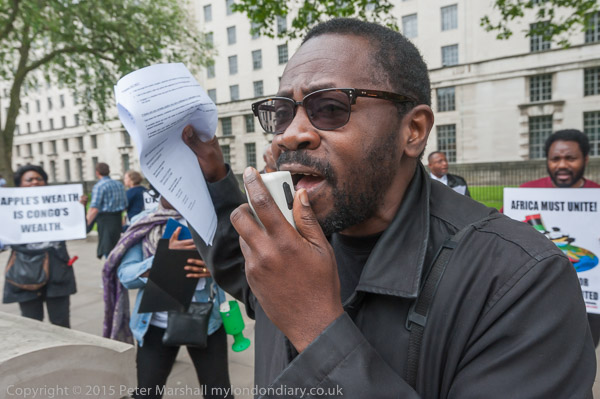
The Patrice Lumumba Coalition protested opposite Downing St after the massacre last month of 120 people in Beni, North Kivu, Congo. They say that since 2014, 1000 people have been horrifically murdered in the region, despite the presence of a UN army and the Congolese armed forces.
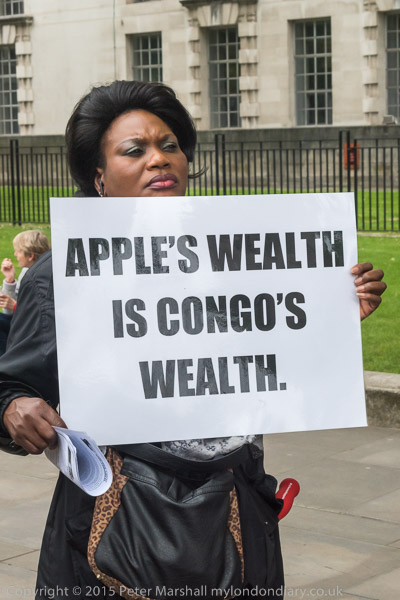
They blame the massacres in Congo which have resulted in over 10 million being killed on the US-backed overthrow of the Mobutu regime and the support by the US, UK, Belgium and Canada of President Museveni in Uganda and President Kagame in Rwanda, whose proxy armies and militia groups attack the Congolese. This war is driven by multinational corporations to provide the mineral reserves of the Congo, gold, oil, tin and particularly coltan, essential for the production of smart phones, laptops and other electronic gadgets.
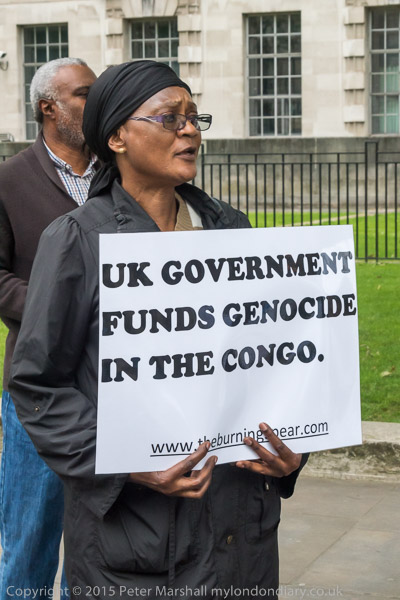
The UK backs the genocide with around £500m a year in support of Congo’s President Kabila, and £90m to prop up the Rwandan regime. They want those responsible for backing the genocide – including Tony Blair and the Clintons as well as African leaders to be brought to justice.
Syrians demand break the siege of Alwaer – Downing St
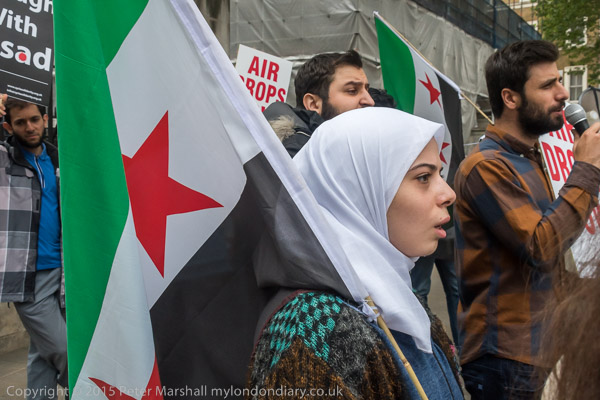
Syrians at Downing St called on the UK and international community to take urgent action to end the siege of Alwaer and 50 other besieged towns in Syria. People are without electricity, drinking water, food, fuel, and medical care and are at risk of dying from malnutrition
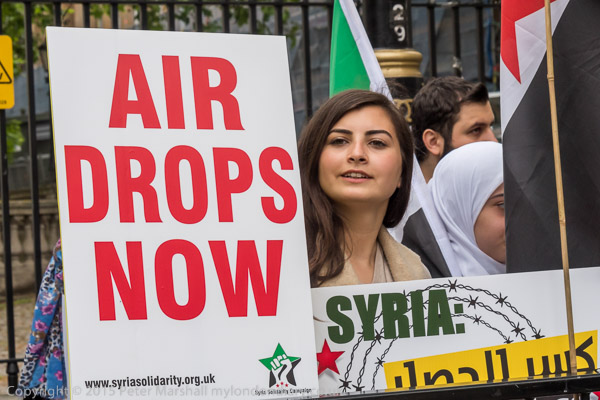
Alwaer, a town of more than 100,000 people, has been under siege by Syrian government forces for over 3 years and many have been killed and others are suffering disease. Assad’s forces are carrying out a systematic and deliberate policy of starvation of civilians, a war crime in grave breach of the Fourth Geneva Convention.
Syrians demand break the siege of Alwaer
